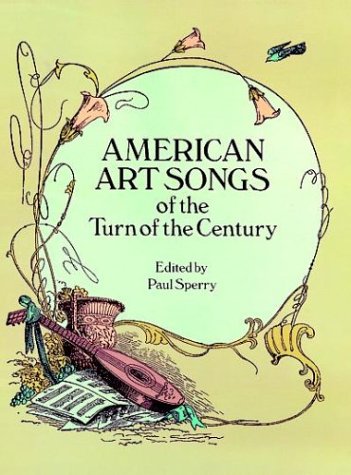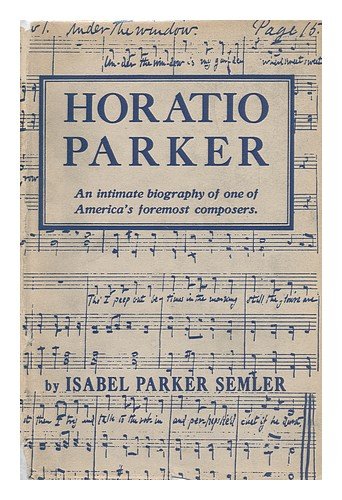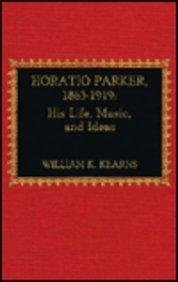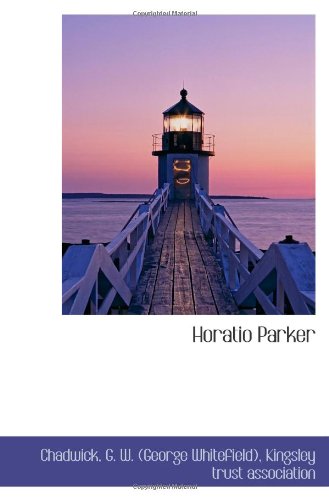About
“When I went to New Haven and took the courses with Professor Horatio W. Parker…I felt more and more what a remarkable background and start Father had given me in music. Parker was a composer and widely known, and Father was not a composer and little known–but from every standpoint I should say that Father was the greater man.” –Charles Ives
With these words America’s most innovative composer, Charles Ives, recalled, late in his life, his Yale mentor, Horatio W. Parker. Given the pioneering music that Ives would write, it is not surprising that he chafed under the tutelage of a man who, again to quote Ives, was “a good technician, but apparently willing to be limited by what Rheinberger et al and the German tradition had taught him.”
With his feet planted solidly in that German tradition, as well as in the classicism of the Second New England School, Horatio Parker had become a major figure in American music at the turn of the 20th century. The teacher of generations of American musicians, among them Ives and Roger Sessions, Parker had a reputation for being brusque and sarcastic as a pedagogue, though he was also known to challenge his students to find their own identities and “talk back to him.” A man of ideals, a strong proponent of individualism, duty, sacrifice, and service, Parker saw music as a spiritual and moral force.
Horatio Parker took up his duties as chairman of the newly established music department at Yale University in 1894 after having studied with Josef Rheinberger in Munich from 1882 to 1885, having taught at the National Conservatory in New York, and, in 1893, shortly after Dvořák arrived at the Conservatory, having returned to Boston to serve a musical apprenticeship under George Whitefield Chadwick. Together with Paine at Harvard, Chadwick at the New England Conservatory, and MacDowell at Columbia, Parker helped to shape the course of higher music education in America and to develop a comprehensive and demanding curriculum that permitted students to receive a grounded musical education at home.
The majority of Parker’s best compositions were serious choral works on medieval or religious subjects. The 1892 cantata Hora Novissima is commonly considered his masterpiece. Set to a Latin text delineating the glories of Heaven, it echoes Italo-French influences in its solo passages, but its majestic choral and organ sections speak of the influence of German religious music and American hymnody.
As a composer so wedded to the European Romanticism, it’s not surprising that Parker should have found Ives’s experimentation perplexing. A delightful anecdote about teacher and pupil is told: In March 1898 Chadwick visited New Haven to attend a performance of his Melpomene Overture with Parker conducting, and he decided to drop by Parker’s Music 4 class. When Chadwick entered the room, Parker was in the process of critiquing Ives’s song “Summerfields,” objecting to “too many keys in the middle.” Chadwick strode over to Ives, picked up the manuscript, studied it for a moment, and then said: “In its way it’s almost as good as Brahms,” and turning with a wink to Parker, added, “That’s as good a song as you could write!” One can only imagine that Parker, ever the aristocratic gentleman, had the good grace to smile!
–Thomas Hampson and Carla Maria Verdino-Süllwold, PBS I Hear America Singing
Photo: Digital ID: cph 3b04623 Source: b&w film copy neg. Reproduction Number: LC-USZ62-56791 (b&w film copy neg.) Repository: Library of Congress Prints and Photographs Division Washington, D.C. 20540 USA
Related Information
Songs
Good-Bye, op. 59, no. 4
Horatio Parker
Christina Rossetti
June Night
Horatio Parker
Ella Higginson
Six Songs, Op. 24
Song CollectionHoratio Parker
The Blackbird, op. 59, no. 3
Horatio Parker
William Ernest Henley
Three Sacred Songs, Op. 22
Song CollectionHoratio Parker
Horatio Parker
Three Songs, Op. 23
Song CollectionHoratio Parker
Recordings
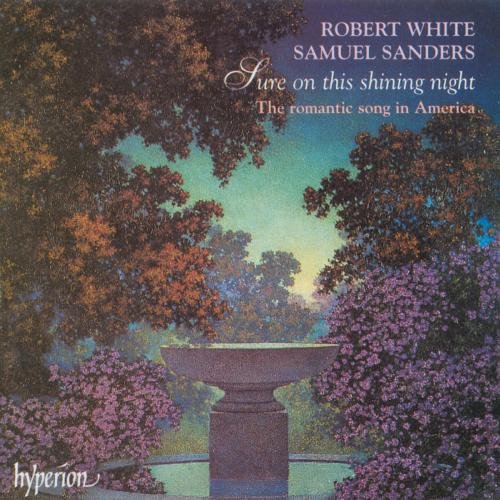
Sure on This Shining Night
(Samuel Barber, George Whitefield Chadwick, Charles Ives, John Corigliano, Aaron Copland, William Bolcom, Ned Rorem, Richard Hageman, Charles Griffes, Victor Herbert, Horatio Parker, John Musto, Amy Marcy Beach, Theodore Chanler and Virgil Thomson)
1997
Books
Sheet Music
Three Sacred Songs, Op. 22
Composer(s): Horatio Parker
Song(s): 1. Morning
2. Evening
3.Heaven's Hope
Six Songs, Op. 24
Composer(s): Horatio Parker
Song(s): 1. Cavalry song
2. Egyptian serenade
3. The light is fading
4. O ask me not [Lieb Seelchen lass das Fragen sein]
5. Pack, clouds, away!
6. Spring song


